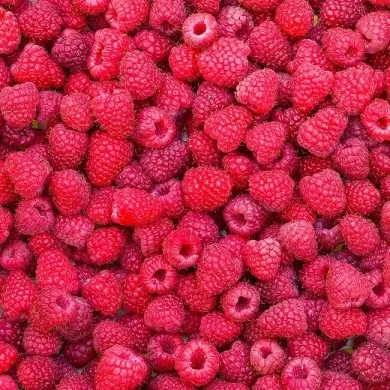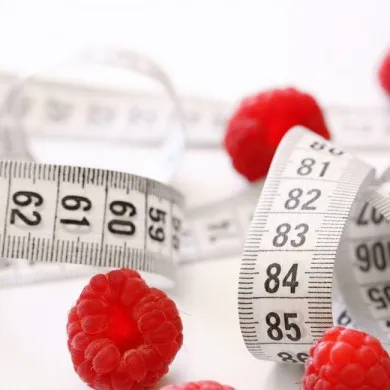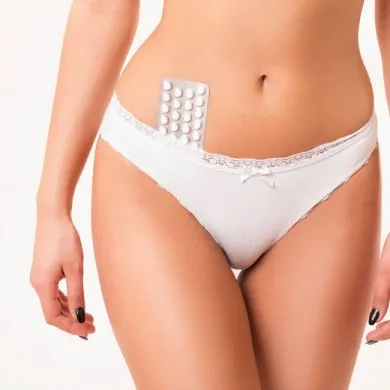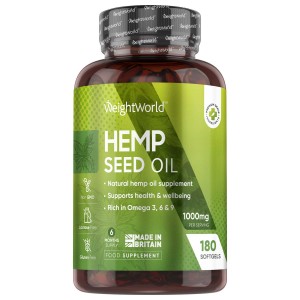What Is Hemp?
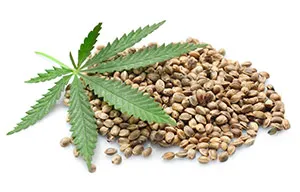
Hemp is a dioecious plant (a plant group that includes distinct male and female plants) referring to the non-psychoactive varieties of Cannabis Sativa (hemp scientific name). Also known as Industrial Hemp, it contains little to no THC. Hemp is a rotation crop which breathes in CO2 and detoxifies the soil whilst preventing soil erosion. Hemp extract decomposes into the soil, providing essential nutrients.
Hemp can be cultivated as a renewable source for raw materials and can further be incorporated into a wide spectrum of products. The stalks and fibres can be used in construction materials, hemp clothing, paper, biofuel and more, whilst its flowers and seeds are widely used in organic body care and health food products. What’s more, many people consider hemp seeds to be a superfood due to its rich nutritional profile and multiple health benefits.
Origin And History Of Hemp
So, where does hemp come from? According to historical records, hemp originates from Asia, particularly from the Himalayas. It's also known that hemp was used 10,000 years ago in the Taiwan area. Initially, hemp was used for clothing, ropes, footwear and as a food source. According to some records, hemp was first used for its medicinal properties in China, between 2838 – 2698 B.C. Hemp was primarily used for making oils and teas which help ease your arthritis pain. Furthermore, in essential ayurveda, fresh leaves were wrapped around combat wounds for faster healing.
The Difference Explained Between Hemp And Marijuana
Is hemp a drug? It’s a common misconception among people that hemp is marijuana, an intoxicating drug. Well, that's not true! Although they both belong to the same cannabis family, they are genetically different. They not only differ in chemical composition but also their usage and cultivation methods. Let’s gain deeper in-sights of it:
Appearance
Hemp leaf is much different than that of marijuana. The Hemp plant grows taller and skinnier with skinny leaves concentrated on the upper portion of the plant. On the other hand, marijuana has a bushy appearance with broad leaves and dense buds.
Chemical Composition
Marijuana contains up to 30% of THC – the intoxicating compound responsible for “getting you high”. While hemp contains no more than 0.3% THC by dry weight. So, the answer to the most-awaited question, “can you smoke hemp?” is yes, you can smoke hemp but it won't get you high, unlike marijuana. The difference in their THC content is also a primary factor in their legality.
Cultivation
Both the plants are cultivated in completely different environments. With a growth cycle between 108 to 120 days, Hemp cultivation can be done in most climates. In comparison, the marijuana plant needs to be cultivated in a warm, humid and controlled climate. It has a growth cycle of 60-90 days.
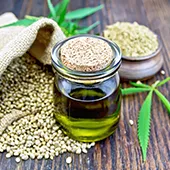 |
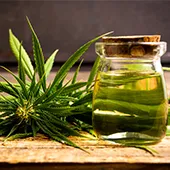 |
|---|---|
| HEMP | MARIJUANA |
| THC in Hemp is no more than 0.3 | Contains 5-35% THC content |
| Non-psychoactive | Psychoactive |
| Adaptable and cultivated in most climates | Cultivated in a controlled environment |
| Used for textiles, rope, paper and nutrition and health supplements | Used for medicinal and recreational purposes |
How Is Hemp Processed?
Hemp is cultivated in a specific manner for the production of hemp-derived supplements and medicines. Industrial hemp is harvested by using state-of-the-art harvesting equipment like combine harvesters. These machines cut the hemp plant at the base, cut the flowering head for seed processing and the stalk for fibre processing. While, on the other hand, medical hemp is harvested by hand to make certain that the flower heads are kept clean and intact.
Hemp processing is an immediate process of wet and dry material required to prepare the hemp for food, industrial and medical use. Its drying and storage are considered as one of the most crucial steps of after harvesting processing as it concludes the quality of hemp products. When the harvest is dried cleanly, quickly and with minimal damage, it maximises the product quality including for food and medicine.
Nutritional Breakdown of Hemp
As per the United States Department of Agriculture (USDA), one serving of hemp seeds, i.e. 3 tablespoons, provides: [2]
- Calories – 116
- Protein – 9.47g
- Carbohydrates - 2.60 g
- Fat - 1.20 g
- Total fatty acids - 14.62 g
- Monounsaturated fatty acids - 1.62 g
- Polyunsaturated fat - 11.43 g
- Saturated fatty acids - 1.38 g
Hemp seeds are also enriched with Vitamin E (0.24g), Calcium (21g), Iron (2.38g), Magnesium (210g), Potassium (360g) and Zinc (2.97g)
What Are The Health Benefits Of Hemp?
-
Rich In Essential Nutrients
These mild, nutty flavoured seeds are very nutritious. They are loaded with minerals such as zinc, iron, magnesium, potassium and calcium. Hemp is an abundant source of GLA, dietary fibre and has a high concentrations of the amino acids. Not just that, it's also enriched with essential fatty acids, omega-3 and omega-6 which play a crucial part in the optimal functioning of the immune system and cardiovascular health.
-
Supports Skin Health

Known for its nourishing properties, Hemp seed oil is highly beneficial for dry, red and flaking skin. The fatty acids and vitamins in the oil help prevent skin breakouts. In other words, it can keep your skin soft, fresh and hydrated and thus is widely used in cosmetic products such as lotions, soaps and lip balms. It also aids in improving overall skin immunity and helps fight infections. The hemp seed oil also contains 60% linoleic acid which supports regular sebum production.
-
Aids Weight Management
As hemp is rich in dietary fats and fibre it helps you feel fuller for a long time, suppressing your appetite in support of your weight management goals. However, take into account that their fat content is also responsible for their high-calorie count. Studies also exhibit that GLA and omega-3 present in Hemp seed oil can also contribute to a healthy weight.
-
Aids Healthy Digestion

Besides having a high protein and fat content, hemp seeds are also rich in both soluble and insoluble dietary fibre. These high fibres seeds keep your digestive system healthy while aiding the growth of beneficial bacteria in your gut which supports a strong immune system and healthy digestion.
-
Relieves PMS Symptoms
Hemp seed oil is high in GLA which helps ease menstrual cramps. [3] According to studies, hemp has proven to be highly effective in decreasing breast tenderness and pain, depression, irritability and fluid retention. [4] Furthermore, as hemp seeds are rich in GLA it also helps regulate the symptoms associated with menopause and weight loss cause.
-
Beneficial During Pregnancy

You'll be surprised to know that a hemp seed supplement is a great option for pregnant women as well. All the credit goes to its rich Omega-3 content. As per an American study, during pregnancy, it's essential to have an adequate amount of omega-3 fatty acids as they work as the building blocks of the brain and retina of the foetus. [5] However, it's highly recommended to first consult a doctor before taking any supplements whilst pregnant.
-
Boosts Hair Health
Hemp seed oil is packed full of lipids which strengthen fragile hair and make them appear thicker. It also supports adding shine and moisture to the hair strands. Regular application of this oil on the scalp helps alleviate multiple scalp problems including dryness, dandruff and itchiness. The hemp seed oil promotes blood circulation to the scalp while improving its health.
What Is Industrial Hemp Used For?
-
Fibre
As mentioned earlier, the fibre content of hemp has been used for fabrics, textiles, paper and rope for millennia. In fact, the word ‘Canvas' is derived from the word cannabis.
-
Construction
You’ll be surprised to know that hemp can be used in the production of varied building materials such as biodegradable plastics, concrete-like blocks and wood replacements. Additionally, it has also been used in the production of electronics and cars.
-
Biofuel
The oil derived from the stalks and seeds of hemp can also be made into biofuels such as biodiesel. Also known as “hempoline”, this biofuel is used to power engines.
Is Hemp illegal?
There was a lot of chaos regarding legalising hemp. Luckily, Hemp is federally legal! As stated in a report by the United States Drug Enforcement Administration, Marijuana and hemp are separate species of the cannabis plants. The federal government focused on those species of cannabis that are THC sources, and hemp contains zero or a small amount of THC. The 2018 Farm Bill defined hemp as the cultivar Cannabis Sativa L. plants.
Most of the manufacturers ensure that the hemp seed oil and products they offer contain no THC. However, it's always best to play safe and check the ingredients listed on the labels. If it contains no THC, you're good to go. Also, always opt for organic hemp products.
When it comes to the UK, hemp is legal. Also, you can grow hemp in the UK. However, you'll need to apply to Home Office Drugs Licensing for acquiring hemp growing license in the UK.
What Are The Risks & Side Effects Of Hemp?
Although hemp belongs to the cannabis plants, they ideally contain no THC - one of the most active ingredients. Topical application of hemp oil can lead to mild irritation in some people. Thus, it’s advisable to do a patch test prior application.
As hemp seed oil is rich in fat content, its oral consumption can lead to digestive problems. This can easily be avoided by consuming a small amount at first. There are many potential health benefits of topical application of hemp oil. However, it's highly advisable to seek medical consult before use.
Final Thoughts
Let go off all the worry – simply be careful about the THC content and reap the Hemp benefits. It has a rich nutritional profile and contains a high amount of fatty acids, vitamins, minerals and antioxidants.
Recently, there has been a drastic improvement in the awareness of its exceptional nutritional value which has resulted in the use of medicinal benefits and laws for legalisation. All in all, hemp seeds are incredibly healthy and they may soon be considered a superfood worthy of its health benefits.
